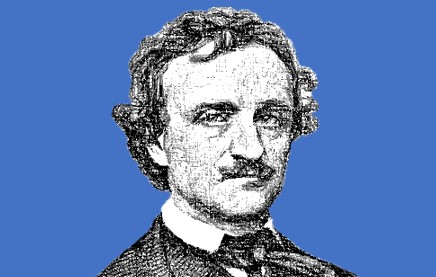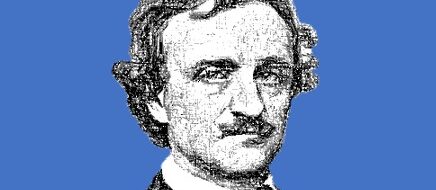AUTHOR VIRGIL – THE AMAZING BIOGRAPHY OF PUBLIUS VERGILLUS MARO

Who Was AUTHOR VIRGIL?
AUTHOR VIRGIL – Roman poet Publius Vergilius Marone, well known by his more familiar name, Virgil, was a classical Roman poet who is best known for writing the epic poem Aeneid. In the year 70 BCE, he was born in the relatively small village of Andes, which is located close to Mantua in the northern region of Italy. His father was a farmer who eventually became a minor official. Virgil was a gifted poet and writer who left an indelible mark on Roman and Western literature as a result of his creative contributions. The epic poem known as the Aeneid was Virgil’s final and most important work. In it, he attempted to illustrate what he saw to be Rome’s divine destiny.
Today, the poem is still considered a literary masterpiece, despite the fact that it was written in twelve books. However, there are many who wonder whether or not the poet also displayed ambivalence regarding the cost of empire. Even though he was on his way to Greece, Virgil passed away at Brundisium, Italy, in the year 19 BCE. In the years that followed his passing, Virgil’s legacy continued to serve as a source of motivation for poets of all time. He left behind a legacy as one of the finest poets in Roman history, and his works are still read and studied by a large number of people to this day.
Publius Vergilius’s Formative Years
- Birth and Childhood
Publius Vergilius Maro, commonly referred to as Virgil or Vergil in English, was born on October 15, 70 B.C. in Andes, a location near Mantua, Italy. Mantua, which is now known as Mantova, was a Roman city that remains buried beneath the Piazza dell’Erbe, a Renaissance vegetable market, at a depth of 10 feet.
Not too many know how old the town was at the time, it was originally Etruscan, but it was a component of the province known as Cisalpine Gaul around the time that Virgil was born. This province reached all the way to the Alps and encompassed the Po Valley, which was a place where the god Silvanus, also known as the Wood god, was particularly famous. The Alps were unrestricted and completely autonomous, despite the fact that they had been extensively explored and were well-known to both the Greeks and the Romans respectively.
Greek influence and Greek works of art had already made their way past Ancona and Rimini and well into the Alps a very long time ago; nonetheless, the Romans acquired control of the entire region at the beginning of the second century BC. Virgil was born into a family of peasants, and the Italian countryside and its inhabitants had a significant impact on him from an early age. This influence was later reflected in his poetry.
He was born into the Roman citizenship system and was a kid of the middle class. His family, both his mother’s and his father’s, served as magistrates in Rome during his lifetime. There is a possibility that Virgil’s father was a Roman eques Romanus, which is a Roman knight or squire. Due to the fact that his father married into a wealthy family, Virgil was able to receive his education at Cremona, which is located in Milan and Rome. There, he studied the works of Greek and Roman poets and authors.
Publius Vergilius’s Professional Career Journey
- Political Career
When he was approximately seventeen years old, young Virgil made his way to Rome. That would be around one year after the untimely passing of Catullus, who was born in 84 BC and passed away in approximately 54 BC. It is a sad tragedy that they were never able to meet one other. At the time of his younger years, Italy was experiencing political and military warfare as a result of the dissolution of the Roman Republic.
Immediately after the civil war that took place between Marius and Sulla, Pompey and Julius Caesar were involved in a conflict. The civil wars that Caesar started lasted until the victory of Caesar Augustus, commonly known as Octavian, in the year 31 B.C. Virgil was profoundly affected by these events, which resulted in him developing a deep-seated aversion to and terror of civil war, which was frequently expressed in his writing.
Career in the Literary Arts
There is a possibility that some of Virgil’s early poetry has been preserved in a collection of poems that are attributed to him and are known as the Appendix Vergiliana; nevertheless, it is highly improbable that many of these pieces are authentic.
~ Pastoral Poetry
The Eclogues, which are classified as Virgil’s first known work, are a collection of ten pastoral poems that were written between the years 42 and 37 BCE. The collection of ten hexameter poems featured a stilted investigation of the pastoral world that Virgil had always admired. The Greek poet Theocritus served as the source of inspiration for the anthology.
As a result of the fact that it described the birth of a unique child who would bring about widespread societal harmony, Virgil’s fourth eclogue has also been referred to as his Messianic Eclogue. This is because it was later interpreted as a prophecy of the future birth of Jesus Christ. (The sentence, according to the interpretations of a number of academics, is most likely related to the impending arrival of a child for Augustus and his wife Octavia.)
The Georgics were also written by Virgil between the years 37 and 30 B.C., which was close to the time when the civil wars came to a conclusion. Georgics was a clear treatise that was supported by Augustus. Its primary concentration was on the intricacies of agricultural life. Farmers in rural Italy were forced to serve in the military during the war, which resulted in the destruction of their crops. Many people from the countryside were forced to relocate to Rome, much to the emperor’s dismay. Not only did Virgil’s poetry quickly gain popularity due to his national ideals and Italian origin, but it also garnered appeal due to his exceptional poetic skills in terms of form, diction, and meter.
- The Aeneid
The epic poem known as the Aeneid was Virgil’s final and most important work. In it, he attempted to illustrate Rome’s divine destiny. With a total of twelve volumes, the poem was significantly influenced by Homer’s Iliad and Odyssey, both of which were written in the eighth century B.C. After the destruction of Troy by the Greeks in the 12th century B.C., it chronicled the story of a hero named Aeneid who was torn away from his homeland and forced into exile. The poem commented on the domain of Roman history from its earliest days, foretelling major events that led to Augustus’s reign as the current ruler of the Roman Empire.
Eleven years of Virgil’s life were spent working on the Aeneid, which he finally left incomplete when he passed away. His work served as an inspiration to others, including the poet Ovid, who was a younger contemporary of his. Ovid’s work was evocative of Virgil’s, but it also had his own daring aesthetic, a practice that was replicated throughout the ancient literary Silver Age. The epic form, style, and language of the Aeneid served as a source of inspiration for John Milton’s Paradise Lost, which was written according to the same principles.
A witness to the admiration that Dante had for Virgil can be found in the epic poem that he wrote called Divine Comedy. Virgil acted as Dante’s guide throughout the Divine Comedy, guiding him through Hell and ultimately leading him to the gates of Heaven. The Aeneid is still considered a literary masterpiece in modern times, and students continue to study the book and discuss the strengths and weaknesses of the work.
Publius Vergilius’s Personal Life
The statuesque Virgil was known to be attracted to men, and he never married any of his life’s partners. As a result of his calm temperament, he made the decision to avoid becoming intimately involved in matters pertaining to the state. Even though the poet favored a life in the countryside, he managed to keep relationships with prominent members of Roman society and, as a result, he was able to exert his own influence on matters pertaining to the state.
The Demise of The Great Poet
Virgil embarked on a journey to Greece in the year 19 B.C., with the intention of devoting the subsequent three years to the completion of the Aeneid. During the course of his expedition, he grew ill with a fever and returned to Italy. He passed away on September 21, 19 B.C., shortly after landing at Brundisium, which is now known as Brindisi. By the time Virgil was on his deathbed, it is stated that he made a request to have The Aeneid destroyed. It is possible that Virgil believed the work to be flawed or that it no longer supported its overall message. However, Augustus is reported to have intervened and ordered that the Aeneid be published.
Vergilius’s Influence and Reputation
The Romans admired Virgil’s poetry for two primary reasons: first, because he was considered to be their own national poet, a spokesman of their ideals and accomplishments; second, because he appeared to have reached the pinnacle of perfection in his art (his structure, diction, and metre). Virgil’s poetry became famous in Rome almost immediately. For the latter reason, his poems were used as textbooks in schools, and Quintilian, a Roman critic and educator who lived in the first century, suggested that the educational curriculum should be based on Virgil’s works.
Virgil has had a significant impact on the literary canon of the English language. He was the unending source of inspiration for Edmund Spenser, who was responsible for the fantastical beauty of The Faerie Queene. Paradise Lost, written by John Milton, was modeled after The Aeneid, not only in terms of its epic structure and mechanism, but also in terms of its style and language. When the English Augustan Age was in full swing, John Dryden and a great number of other people believed that Virgil’s poetry had attained the pinnacle of perfection in terms of both its form and its moral message.
RELATED POSTS:
